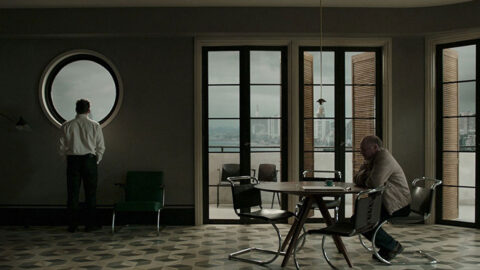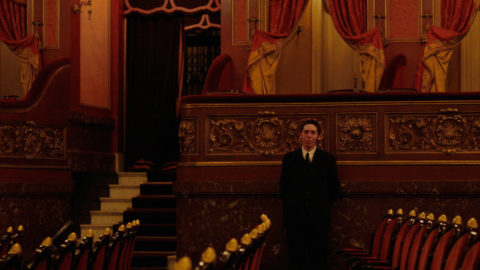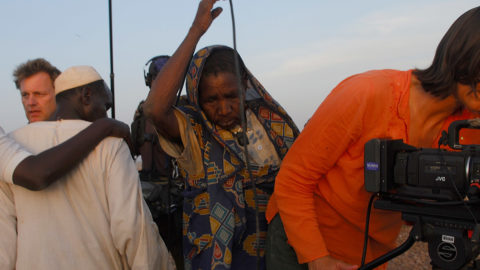News to Me: Kirsten Johnson, João Pedro Rodrigues, Josephine Decker
Kirsten Johnson’s Dick Johnson
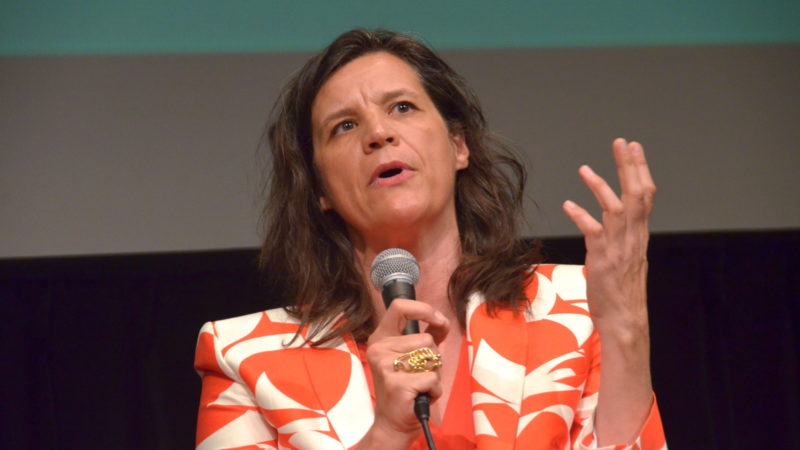
Kirsten Johnson. Photo by Godlis.
Kirsten Johnson’s next film is a unique collaborative work with her father. Dick Johnson (which shares his name) will, according to Johnson, “explore the unexpectedness of death, the surrealism of dementia, and cinema’s capacity to create life.”
“With the magic of fiction, and the help of stuntpeople, my dad will die unexpectedly in each scene of the movie, until he dies for real, and then nothing will be able to help us,” Johnson told Film Comment.
In an early 2017 interview with Variety, Johnson envisioned the project as both an observational documentary and a “hilarious heartbreaker,” situating it at the intersection of Groundhog Day, Buster Keaton, Jacques Tati, and Jackass. The film opens up a singular space for Johnson to push and prod at the connection between lived experience and cinematic depiction, especially with regard to industry workers who don’t often have the opportunity to speak on camera.
“My father, who is now retired, was a psychiatrist,” Johnson said. “As we cast and work with the various stuntpeople who are all ‘specialized’ in different forms of dying, we are also filming scenes in which my father asks the stuntpeople questions about why they do what they do—actually putting their bodies on the line in the service of cinema while remaining virtually invisible. He approaches them as a therapist would, curious and gentle about the why of their work and the ways in which it relates to the suicidal.”
Johnson’s 2016 feature, Cameraperson, was constructed from her past work as a cinematographer with other directors (Laura Poitras on The Oath and CITIZENFOUR, Gini Reticker on Pray the Devil Back to Hell, and Kirby Dick and Amy Ziering on Derrida), and investigates the ethical nuances of the interaction between documentary subject and object. Johnson addresses the ways in which her professional and personal lives intermingle; the heart of the film may be her negotiation of the advancement of her mother’s Alzheimer’s.
The inspiration for Dick Johnson was organic: a dream that unexpectedly captured the spirit of Johnson’s approach, both in terms of intermingling documentary and fiction, as well as her embrace of absurdity and humor. “I saw a man—who I did not know and who was not my father—sit up from a casket and say, ‘My name is Dick Johnson and I am not dead yet!’” Johnson said. “Hence, the first idea for a scene to film was my father’s actual funeral while he is still alive, which we did film as a documentary scene. We invited all of his friends and family, who knew he was not dead, but did know that he was retiring, moving away from the city he had lived for 50 years, and beginning to change because of the dementia. My father listened on headphones hidden in the balcony of the church to his own funeral and loved it!”
By working together to build out the world of the film, Johnson and her father are crafting and inhabiting an environment that provides new points of entry into their own relationship. “Though my father’s dementia is progressing, he is at his most lucid when he inhabits his role as a therapist,” Johnson said, adding: “I think of this film as a form of pre-traumatic therapy. Both of us coped with my mother’s Alzheimer’s with much sadness and grieving, so we decided we wanted to attempt to cope with what is happening to my father with as bold a sense of humor and as great a respect for his capacities as a remarkably emotionally open person as we can manage.”
Films on the Horizon
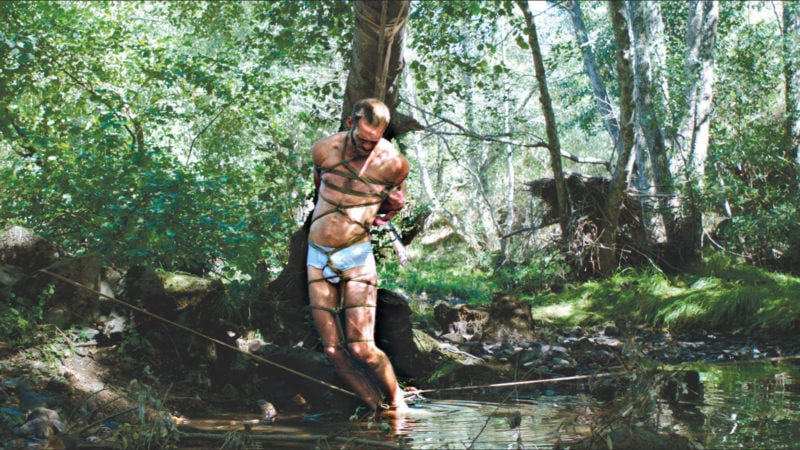
The Ornithologist
João Pedro Rodrigues is co-writing his next film, tentatively titled Afonso’s Smile, with his longtime creative collaborator João Rui Guerra da Mata. Through this chronicle of a teenager living through the 1974 Carnation Revolution in Portugal, Rodrigues hopes to reflect on how “there was this new freedom but at the same time, in many ways, Portugal remained very conservative” in the immediate aftermath of the dictatorship . . . This week, Josephine Decker travels to Catskill, New York, to begin filming Shirley, her Shirley Jackson biopic starring Elisabeth Moss and Michael Stuhlbarg . . . Gastón Solnicki’s Electrocute, following his recently announced Venice premiere, Introduzione all’oscuro (“Introduction to Darkness”), will center on a young medical student with cardiac arrhythmia who lives in Buenos Aires; soon to be married, she reckons with “the revelations of neurobiology” and “the false comforts of a bourgeois, Jewish upbringing.”
Readings
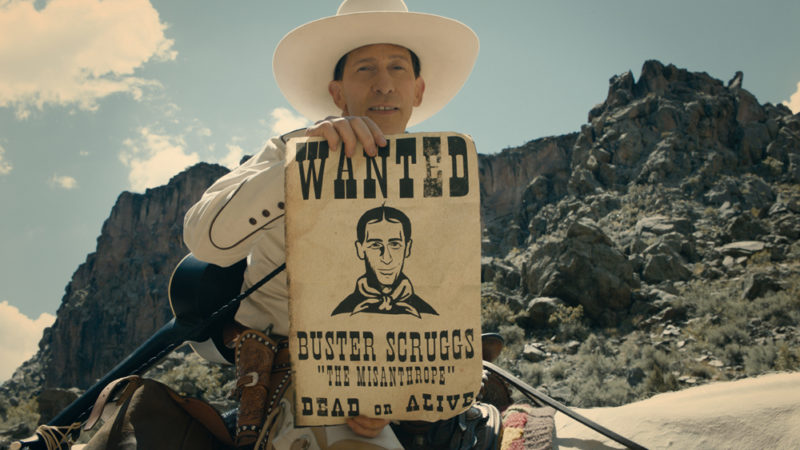
The Ballad of Buster Scruggs
✸ Venice announced the lineup for its 75th edition, featuring work by Mike Leigh, the Coen Brothers, Luca Guadagnino, Jennifer Kent, and more.
✸ On his blog, critic, professor, and Film Comment contributor Girish Shambu is curating a monthly roundup of “particularly interesting reads about cinema, feminism, and politics.”
✸ Business Insider reports on the service outages plaguing MoviePass both last Thursday and early this week, after parent company Helios and Matheson Analytics reportedly ran out of money temporarily and borrowed $5 million in cash to continue service. In May, Eddie Yoon and Erich Joachimsthaler posed a few potential solutions in the Harvard Business Review.
✸ The International Alliance of Theatrical Stage Employees reached a tentative deal with the Alliance of Motion Picture and Television Producers this week, reports the Los Angeles Times, but the director of the Editors Guild, Cathy Repola opposes the contract’s “provisions for rest periods and contributions to the health and pension plans.”



